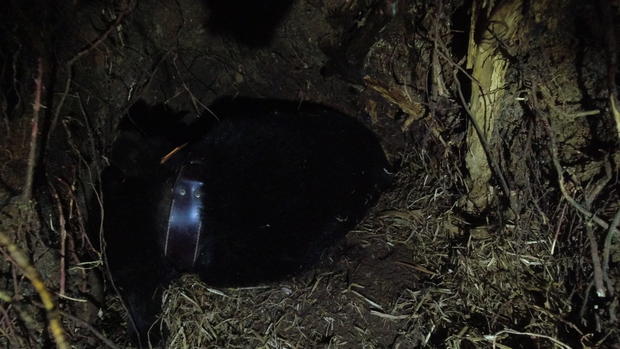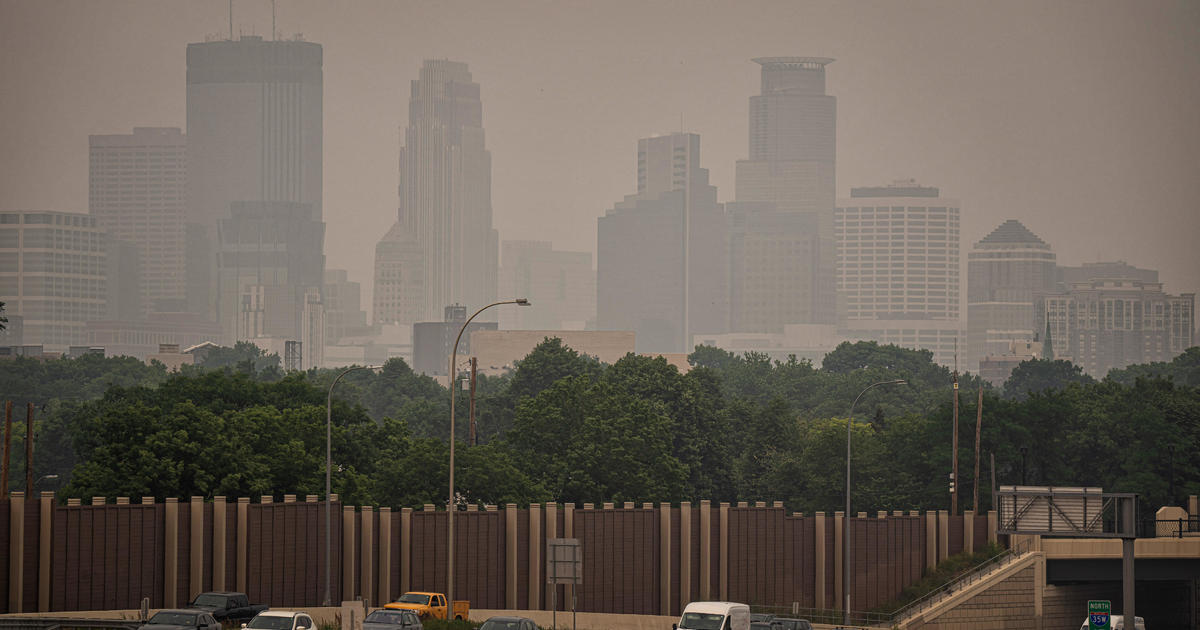Black Bear Researchers Study The Secrets Of Hibernation
GRAND RAPIDS, Minn. (WCCO) -- The way black bears survive Minnesota winters seems like one of nature's wildest stunts.
WCCO reporter Erin Hassanzadeh and photojournalist Joe Berglove tag along with researchers in Grand Rapids who hope to learn how to keep them healthy.
__________
Dave Garshelis with the Minnesota Department of Natural Resources has gone head-first into more than 1,000 bear dens -- which happens when you spend 40 years researching black bears.
"I don't want to ever get to the point where I'm so callous that you'd think nothing could happen, because it can," Garshelis said.
University of Minnesota heart experts Paul Iaizzo and Tim Laske have been in a few bear dens themselves.
"Three-hundred to 500 bear dens," Laske said.
MORE: Journey Inside A Bear's Den In Northern Minnesota
For them, the mission sounds simple: better understand the black bear's six-month hibernation period.
"They're totally immobilized. You saw that den. They're not moving around, you're not exercising," Iaizzo said. "So it's pretty amazing that they can go that period of time and not lose any skeletal muscle mass or cardiac function."
And they want to know if anything they learn here could translate into medical breakthroughs for humans. For the DNR researchers like Andrew Tri, this study is about keeping Minnesota's black bear population steady.
"The climate's changing, the habitat's changing, things are changing and we need to be able to monitor the population," Tri said.
But researchers learn the bears habits and preferences along the way, like their favorite food.
"They just pound those acorns like candy," Tri said.
And the winter homes they're making in dens, and in more above-ground nests.
"More and more bears are doing this, and we're hypothesizing that one of the reasons might be because of flooding," Garshelis said.
We're also seeing bears in Minnesota in places they wouldn't normally go, in the face of a sharp decline in food.
"To have this long-term trend over that many decades was pretty remarkable," Garshelis said. "The bears increased the size of their home range."
But nothing has stopped them yet. And as long as they're here, these researchers hope to be there, too, learning alongside them.
"They're very adaptive," Garshelis said. "That's the thing about American black bears."
One researcher thinks bears don't actually sleep when they hibernate. Their heart rate is lowered, taking only two breaths per minute. But when researchers watch cardiac monitors, they show the bear starts huffing to raise its heart rate. Essentially, staying alert during hibernation as a sort of defense mechanism.




